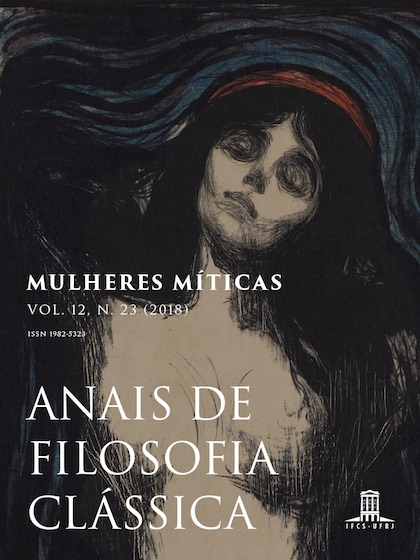Medeia - At the service of justice and piety
DOI:
https://doi.org/10.47661/afcl.v12i23.8843Keywords:
Euripides, Medea, Greek TragedyAbstract
In archaic Greek mythic thought, Justice is one of the fundamental aspects of the world, perceived and described as a Goddess, daughter of Zeus and Themis, a member of the triad of the Hours (HES. W.D. 901-903). Being one of the Hours, Justice, like the two other sisters of the same triad, manifests itself in the temporal horizon of the course of events as the actualization of the order and the designs of Zeus. In the theatre of Euripides, in my view, the question of justice, thought and determined in the terms of the mythical imaginary, constitutes the guiding thread of the narrative; - and the narrative itself, being constructed according to the logic proper to mythical thought, is in turn a verbal image of the mythical notion of justice and therefore a demonstration of the constancy and inevitability of the Justice of Zeus. Through the analysis and interpretation of Euripides 'tragedy Medea, we will now see the demonstration of this general thesis of Euripides' theatre in one of his tragedies.References
EURIPIDES -- Medea. Edited by Donald J. Mastronarde. Cambridge University Press,
EURIPIDES -- Medea. Introduction, Translation and Commentary by Judith Mossman.
Oxford, Aris & Phillips, 2011.
EURIPIDES -- Medea. The text edited with introduction and commentary by Denys L.
Page. Oxford University Press, 1985.
EURIPIDES -- Medea. Translated with na Introduction and Notes A. J. Podlecki.
Newburyport, MA, Focus Classical Library, 2005.
Downloads
Published
2018-12-31
Issue
Section
Artigos


